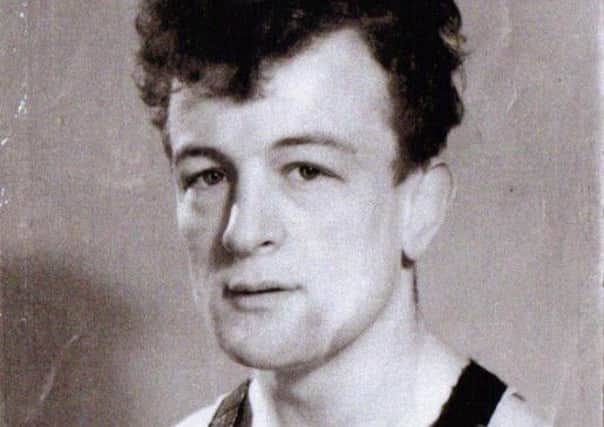Ian Spaven


Mr Spaven was born in Whitby to Agnes, a midwife, and Herbert, corn merchant and agricultural engineer. He went to Sir William Turner’s School at Coatham near Redcar, where he became head boy and captain of rugby.
He joined the RAF in 1943 from school and trained as a bomb aimer/navigator in Canada. In low-level flying he had a very close encounter with a tree on the prairies, and was luckier still to be too late for the hazards of the heavy bomber campaign.
Advertisement
Hide AdAdvertisement
Hide AdHe was sent on a short course at Balliol College, Oxford, returning to Oxford after the war to prepare for entry into the Colonial Service, and he also studied at the School of Oriental and African Studies in London.
Joining the service, he was posted to the Protectorate of Basutoland (now Lesotho) in Southern Africa. Much of his work as a cadet district officer was to trek the mountainous country on horseback. Keeping his seat was no problem as his father, later Goathland Hunt chairman, had put him on horseback from the age of five.
Something in the rest of his work or demeanour did not impress the colonial administration. While never forthcoming on details, it is likely he was in the post-war mould of an angry young man, and this coupled with a typical, straight talking Yorkshireman at odds with the South African apartheid politics which pervaded the administration.
There was much that outraged him, such as the instance when a native doctor was told by a white South African official to stand to attention and address him as ‘Sir’ when applying for his personal licence to be able to drink liquor.
Advertisement
Hide AdAdvertisement
Hide AdHe was proud to relate how his mother had taught him to treat people decently, especially those in service, and he appeared to be given no credit for learning the local language, Sesuto.
He moved on to join a government project based in Uganda to set up agricultural cooperatives – much more to his taste. His new work involved safaris to encourage farmers to grow cotton and coffee and combine together and market and share the profits proportionately.
He spent the first eight years at Jinja above the source of the White Nile where hippopotami often ate the plants in his garden. While there, he got up a rugby team, one of his fellow players being a certain Sgt Idi Amin who later became third president of Uganda and notorious military dictator.
During that period, Mr Spaven had challenging, remote postings up on the Belgian Congo and Sudan borders in West Nile Province, near to Idi Amin’s tribe and the Nuer and Dinka – presently continuing their ancestral wars.
Advertisement
Hide AdAdvertisement
Hide AdHis final posting, lasting five years after Uganda’s independence in 1962, was near the Kenya border under Mount Elgon.
For the rest of his life he used Luganda phrases learnt from the local population, and once primed his daughter-in-law with a greeting used by her class to the visiting Archbishop Sentamu.
Returning to England, Mr Spaven worked at a number of jobs, commuting from his home at Sleights near Whitby before, in 1970, accepting another posting abroad as registrar of cooperatives in the Gilbert and Ellice Islands Colony, on the International Date Line and Equator in the Western Pacific, and now called Kiribati and Tuvalu.
Their only product is copra - dried coconut kernels. He travelled from island to island by boat, but might sometimes use a weekly plane service operating from what had been a major Japanese naval base before taken by the USA Marines. Land crabs ate the roots of anything he planted in his garden, and swimming in the near-by lagoon was hazardous, not only because of some deadly sea life in it, but the human remains and live ammunition.
Advertisement
Hide AdAdvertisement
Hide AdBack in England once more, Mr Spaven moved to a new development under the city walls of York and before retirement worked at the General Accident offices (now those of Aviva).
On retirement he refused to travel or holiday abroad, but did move four miles away to Dunnington.
He married Margaret Howard in Balliol College and the couple celebrated their Diamond Wedding anniversary in York.
He is survived by his son Bruce, born in Basutoland, and daughters Helen, born in Whitby; and Amanda, born in Uganda and his grandchildren Edward, Emily and Amy.